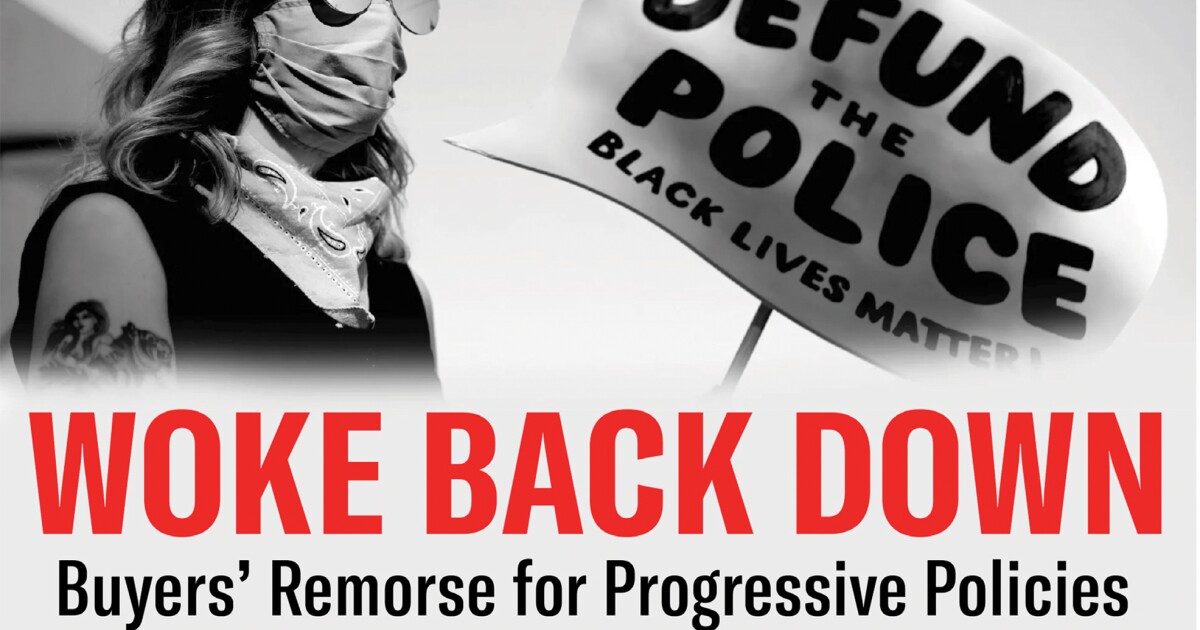

When President Joe Biden was elected in 2020, he campaigned as a supporter of the racial justice protests that broke out following George Floyd’s death in police custody.
“‘I can’t breathe. I can’t breathe.’ George Floyd’s last words. But they didn’t die with him. They’re still being heard. They’re echoing across this nation,” Biden said in Philadelphia amid the civil unrest and riots unfolding in major cities throughout the country.
FOOD STAMPS: WHAT DATE ARE SNAP BENEFITS CARDS RELOADED ACROSS THE COUNTRY
“They speak to a nation where too often just the color of your skin puts your life at risk,” he continued in his Floyd remarks. The white police officer who knelt on the unarmed black man’s neck was later convicted of murder and federal
Three years after Floyd’s killing gripped the country, Biden is trying to gently nudge the Democratic Party away from “defund the police” and other progressive causes that damaged the party down-ballot, even as he won the White House while at the same time holding on to the coalition that elected him.
It’s a delicate balance Biden must continue to strike in his reelection bid next year.
The challenge this poses was on display in recent days. Biden marked the third anniversary of Floyd’s death by vetoing a congressional attempt to overturn police reforms enacted by the Washington, D.C. city council.
“The Congress should respect the District of Columbia’s right to pass measures that improve public safety and public trust,” Biden said in the message to Congress accompanying his veto. “I continue to call on the Congress to pass common-sense police reform legislation. Therefore, I am vetoing this resolution.”
But not long before that, Biden stunned many Democratic lawmakers by signing similar legislation reversing a D.C. crime bill that lightened sentences for certain offenses. “I support D.C. Statehood and home-rule — but I don’t support some of the changes D.C. Council put forward over the Mayor’s objections — such as lowering penalties for carjackings,” Biden tweeted ahead of the Democratic-controlled Senate vote to overturn it.
“We should all agree: The answer is not to defund the police. It’s to fund the police,” Biden said in his 2022 State of the Union address as top House Republican leaders applauded. “Fund them. Fund them. Fund them with resources and training.”
The president’s influence on the rest of his party has been mixed. Candidates who were deemed tougher on crime won Democratic primaries for mayor in New York City and Philadelphia, but more lenient progressives were elected mayor in Los Angeles and Chicago. The latter result was especially surprising given a violent crime wave in Chicago that has received national attention.
“He believes that we should fund the police and give law enforcement the resources they need for effective policing,” White House press secretary Karine Jean-Pierre said of Biden the day after the Chicago mayoral runoff. “That is something that the president has been very vocal about and has taken action.”
Instead Biden has often accused Republicans of wanting to defund the police. That was a core argument the White House made against the House-passed bill during the debt ceiling standoff, calling the GOP measure “the biggest vote to defund law enforcement in American history.”
The president and his deputies have said the same of GOP efforts to crack down on the FBI and Justice Department in the wake of controversial Trump investigations. They have also pointed to attacks on Capitol police during the Jan. 6 riot.
“Let me say this to my MAGA Republican friends in Congress: Don’t tell me you support law enforcement, if you won’t condemn what happened on the 6th,” Biden said in a speech last year, repeating variations of the multiple times since. “Don’t tell me. You can’t do it. For God’s sake. Whose side are you on?”
Biden and Vice President Kamala Harris reacted to the Floyd protests at a time when their once painstakingly established law-and-order credentials were being scrutinized by progressive and other votes. Biden was being criticized, even by former President Donald Trump, for his role in passing the 1994 crime bill as a senior senator from Delaware.
The legislation was an attempt to help another Democratic president, Bill Clinton, defuse the crime issue ahead of a difficult midterm election cycle. By the time Biden won his party’s presidential nomination, it had fallen out of favor and was blamed for contributing to the mass incarceration of black Americans.
Harris similarly rose through the ranks politically through her reputation as a tough prosecutor in California. But her reputation as “Kamala the Cop” helped derail her own presidential candidacy, particularly in a viral debate moment with Tulsi Gabbard in 2019.
“Senator Harris says she’s proud of her record as a prosecutor and that she’ll be a prosecutor president,” Gabbard said at the time. “But I’m deeply concerned about this record. There are too many examples to cite but she put over 1,500 people in jail for marijuana violations and then laughed about it when she was asked if she ever smoked marijuana.”
Biden made Floyd’s death central to his battle for the “soul of the nation.” Harris promoted a controversial bail fund in Minneapolis, where Floyd was killed.
The strategic shift worked, to an extent. The Biden-Harris ticket won voters who said their top concern was racial inequality by 75 points, according to the Washington Post exit poll. That’s 9 points better than they did with voters whose top issue was COVID-19. But Democratic data scientist David Shor found that perceptions the party supported things like defunding the police hurt down-ballot candidates, including among conservative-leaning nonwhite voters. Democrats experienced slippage with Hispanics in competitive races. Trump won nearly one in five black men.
CLICK HERE TO READ MORE IN THE WASHINGTON EXAMINER
Biden and Harris will seek reelection amid signs of flagging enthusiasm among black voters and with crime still a major issue with the broader electorate. A Washington Post/Ipsos poll of black voters found 49% said Biden’s policies made no difference to their community while 58% said they made no difference to them personally.
Remembering how these issues have hurt Democrats in the past, Biden won’t go as “woke” on crime or immigration enforcement as the most liberal members of his party. Neither can he ignore the coalition that elected him the first time.




